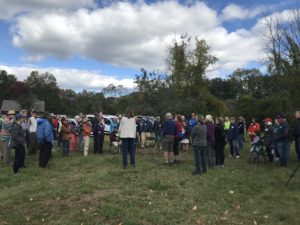Bumblebee and Butterfly ID Workshop


Event Details
Thursday, June 23, 2022
10:00 AM
People for Pollinators Meadow in Lincoln
This event is being co-sponsored with the Lincoln Land Conservation Trust.
Limited to 15 participants. Priority for Concord participants will be given to people who sign up to become a Beecology Citizen Scientist Volunteer. Volunteers under 15 years old need to be accompanied by an adult, who should be the main registrant.
Register using the form below. Further directions will be provided once registered.
Participants must have their own mobile device (ideal for uploading data in real time) or digital camera that can be used in the field to record observations.
If it rains, this event will be rescheduled to a later date. Wear sturdy shoes. Sun hat, sunscreen, and tick/mosquito repellent recommended.
Workshop Description
The CLCT and LLCT are sponsoring a field workshop in the identification of native bumblebees and butterflies for participants interested becoming Beecology Citizen Science Volunteers. Dr. Robert Gegear will train citizen science volunteers to recognize individual species and how to record sightings using the Beecology Web App.
To find out more about how to become a Beecology Citizen Science Volunteer in Concord (Beecologist for short), click here.

Bio
Dr. Robert Gegear is an assistant professor of biology at the University of Massachusetts, Dartmouth. His research interests include the conservation of native pollination systems, floral evolution, and bumblebee ecology. The Gegear Lab at UMASS Dartmouth researches the neuroecology and conservation of plant-pollinator interactions through integrative experimental approaches from fields such as animal behavior, human psychology, molecular biology, community ecology, and computational biology. Previously Dr. Gegear taught at Worcester Polytechnic Institute where he founded The Beecology Project, funded by the National Science Foundation. This initiative uses citizen science to collect much-needed ecological data on native pollinator species and pollinator habitat.
Loading…
































